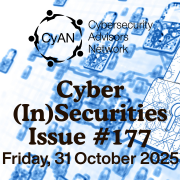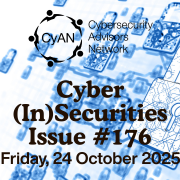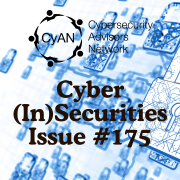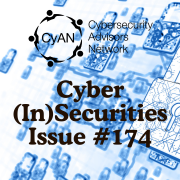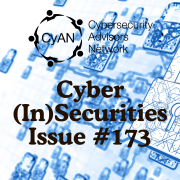Cyber (In)Securities – Issue 177
Explore the latest in cybersecurity, AI accountability, and digital trust from massive data leaks and ransomware hybrids to new regulations under DORA and NIS2. Featuring insights from CyAN members on supply chain security, responsible AI, resilience, and leadership. You can download this edition by clicking …
